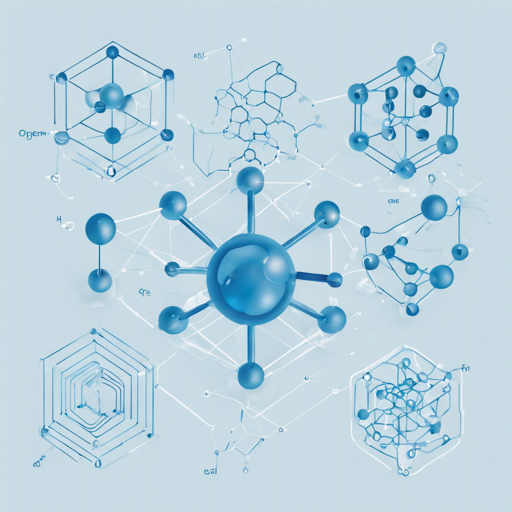Welcome to the world of OpenChem, an incredible deep learning toolkit designed specifically for Computational Chemistry and Drug Design! Powered by the formidable PyTorch backend, OpenChem aims to simplify the integration of deep learning models into your research endeavors. In this guide, we will walk through the installation process, essential features, and some troubleshooting tips to get you up and running smoothly.
Main Features of OpenChem
- Modular design with a unified API for effortless model integration.
- Ease of use with model configurations handled via simple files.
- Fast training capabilities with multi-GPU support.
- Utilities for effective data preprocessing.
- Compatibility with TensorBoard for visualization.
Supported Functionality
- Tasks:
- Classification (binary or multi-class)
- Regression
- Multi-task learning
- Generative model building
- Data Types:
- SMILES strings or amino-acid sequences
- Molecular graphs (conversion from SMILES is handled by OpenChem)
Installing OpenChem
To harness the capabilities of OpenChem, follow the installation steps below.
Requirements
Before diving into the installation process, ensure that you have:
- A modern NVIDIA GPU with compute capability 3.5 or newer.
- Python version 3.5 or newer (we recommend using Anaconda distribution).
- CUDA version 9.0 or newer.
General Installation Steps
For those using Anaconda Python, follow these commands to install OpenChem:
git clone https://github.com/Mariewelt/OpenChem.git
cd OpenChem
conda create --name OpenChem python=3.7
conda activate OpenChem
conda install --yes --file requirements.txt
conda install -c rdkit rdkit nox cairo
conda install pytorch torchvision -c pytorch
pip install -e .If your CUDA version is older than 9.0, make sure to check the PyTorch website for the appropriate installation instructions.
Installation with Docker
If you prefer, you can opt for a Docker-based installation. A Dockerfile is provided so that you can run your models in a pre-configured container with all necessary packages readily installed. Note that you will also need to have nvidia-docker to utilize GPU capabilities.
Troubleshooting Tips
As with any programming tool, you may encounter some hiccups during installation or usage. Here are a few troubleshooting ideas:
- Issues with TensorBoard not launching? Ensure you have installed the required dependencies.
- If you encounter problems during model training, double-check that your GPU meets all specifications and is correctly configured.
- For any other issues, reach out to the community or refer to the comprehensive OpenChem documentation.
- For more insights, updates, or to collaborate on AI development projects, stay connected with fxis.ai.
At fxis.ai, we believe that such advancements are crucial for the future of AI, as they enable more comprehensive and effective solutions. Our team is continually exploring new methodologies to push the envelope in artificial intelligence, ensuring that our clients benefit from the latest technological innovations.
Conclusion
OpenChem stands as a powerful resource for researchers in the field of computational chemistry and drug design. With its modular architecture and ease of use, it opens doors to innovative solutions and methodologies. Dive into the world of OpenChem, and expand your horizons in deep learning and chemical research!

